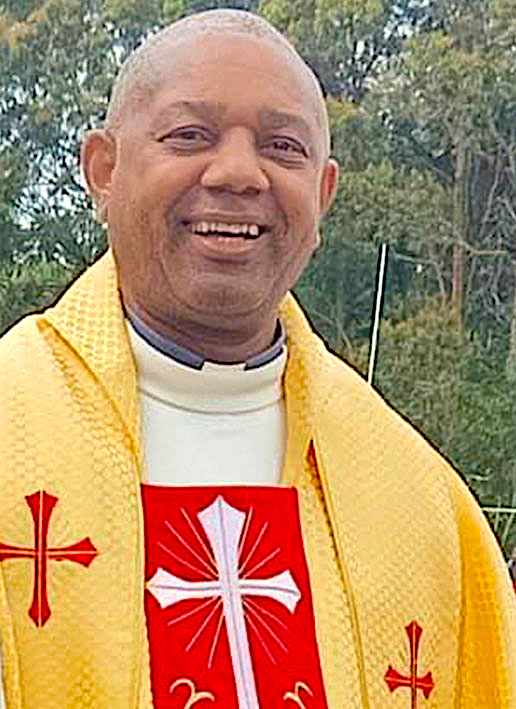KENYA: “I Come as a Humble Servant of God, Ready to Listen,” Bishop-Elect of Kenya’s Malindi Diocese

Very Rev. Wilybard Lagho, Bishop-elect of Malindi Diocese in Kenya
Sr. Jecinter Antoinette Okoth, FSSA
Bishop-elect of Kenya’s Malindi Diocese Very Rev. Wilybard Lagho has disclosed in an interview with AMECEA Online his readiness as a servant to listen to the people of God he will be shepherding in the Coastal region.
“As a humble servant of God, I am ready to sharpen my listening skills as I go to Malindi in order to understand the needs of the Christians,” Very Rev. Lango who was appointed by Pope Francis on Monday, December 28, 2020, has said.
He acknowledged during the Monday, January 4, interview, that even though Malindi Diocese is under the Metropolitan See of Mombasa where he belongs, he has very little knowledge about it but “respects its pastoral landscape.”
“I know Malindi is a small diocese compared to Mombasa and the Christian faith is lived in an environment with a lot of cultural challenges. I also know that bordering Indian Ocean, it has for centuries received visitors from the outside world who have left a mark in their cultural environment some of which are positive such as the ability to live with people from diverse religious background,” Mons. Lagho highlighted.
He added, “These are issues that one observes as an outsider but it can be totally different when one looks at the diocese from the inside. The picture might point to a very different priority and that is why I want to suspend my priorities until I feel comfortable and, through listening, understand what should be the priorities.”
Very Rev. Lango succeeds the late Bishop Emanuel Barbara a member of the Order of Friars Minor Capuchin (OFM Cap) who died in January 2018. Malindi has been under the Diocesan Administrator Fr. Albert Buijs a member of Saint Joseph’s Missionary Society also known as Mill Hill Missionaries (MHM).
Asked about the legacy of the late Bishop Barbara that he would wish to safeguard as the Local Ordinary of the Malindi, Fr Lango who worked with the late Prelate for nearly two years when he (Bishop Barbara) was the Apostolic Administrator of Mombasa said, “I respect the late Bishop in terms of his ability to listen and quickly get involved in resolving issues. So, clarity of issues, the ability to accompany priests in their pastoral work whenever they needed his support and how he treasured the relationship among the clergy are some of the legacies I can attribute to him and which I think every shepherd should be concerned about.”
Until his appointment, the Bishop-elect has been the Vicar General and Head of Secretariat in the Catholic Archdiocese of Mombasa. He is also the former Consultor in the Pontifical Council for Inter-religious Dialogue (Rome) Italy, a position he held from 2008 for a period of five years during which they developed a manual for teaching Islam and interreligious dialogue in the Catholic Institutions of higher learning for the Anglophone countries in Africa.
In reference to the skills acquired during his service as Consultor in the Pontifical Council for Inter-religious Dialogue, Bishop-elect wishes that all those in leadership whether Religious, political or community leaders be empowered with analysis tools and abilities so that in their respective small conflicts, even in the family, they can be instruments of peace.
Addressing the Christians of Malindi Diocese during the interview, the Bishop-elect expressed his openness to listen to faith and life issues of the Christians saying, “I promise to listen so that we begin to understand where we are and where we want to go. Besides, I go to Malindi as a son, a brother and a father, counting on their prayers and collaboration.”
He also appreciated all those who have accompanied and molded him in his ministry especially the clergy, the Religious and all Christians of Mombasa Archdiocese and asked them to hold firm what they have learnt from the Prelates who have been administering in the Archdiocese.
He further urged all those from the coastal region to value education.
“We need to prioritize education for our children. It should never be said that coastal people are naturally lazy when it comes to matters of education and development,” he said adding, “It is through education that we shall be employed in the available jobs in the market. Otherwise if we don’t have many qualified people in the region, we will continue blaming others for our miseries and that can be a source of conflict.”


